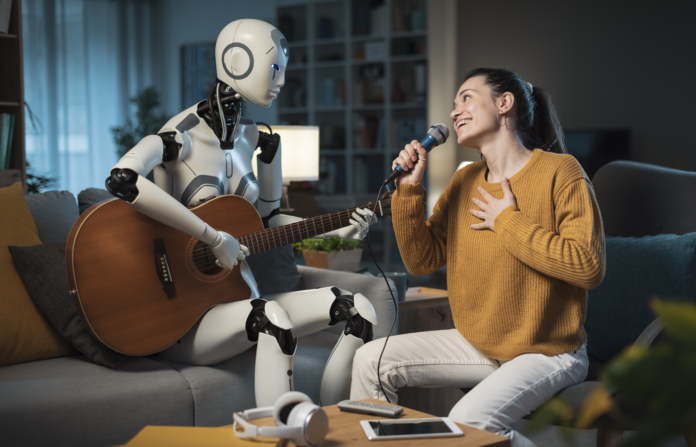Some people who believe music is an artistic expression of human emotion say the idea of replacing the human element with AI makes them uncomfortable—including Meta CEO Mark Zuckerberg, who recently called AI-generated music “soulless.” While AI could help democratize innovation, AI-generated music divides opinion, sparking debate where both sides of the aisle show passion in defense of their take on the issue.
Zuckerberg offered his take on the role of AI in music and arts, which supposedly require more creative artistry than using computer codes. “AI will probably be able to produce technically interesting music,” he said on the Track Star show, “but it may sometimes feel a little soulless because it lacks the other parts of the human connection.”
Zuckerberg also shared his favorite songs, which include the music of Daft Punk, a French electronic music duo that experiments with technology. At least one of the members, Thomas Bangalter, has expressed his own discomfort with AI.
“I love technology as a tool, [but] I’m somehow terrified of the nature of the relationship between the machines and ourselves,” Bangalter said in a 2023 interview. “My concerns about the rise of artificial intelligence go beyond its use in music creation.”
Generative artificial intelligence tools like Suno and Udio have been creating digital music with technical precision. Even YouTube is experimenting with AI to aid content creators in their artistic endeavors. However, issues arising from music-making AI stem from the idea that, as a computer program, it cannot create music on its own—instead, it summarizes the music with which it is trained. Major labels have taken legal action against Suno and Udio for allegedly using copyrighted music to train their AI models without permission.
AI as an assistant to the artistic process is one thing. Letting it produce music altogether is wholly another thing. With artists and label companies defending their copyrighted creations in the courts of law, AI-generated music continues to flood the airwaves, attracting new artists and music enthusiasts.
Zuckerberg has joined Spotify CEO Daniel Ek in supporting open-source AI models to democratize innovation, but the question remains whether to allow generative AI to fully replace people in matters that involve or require human creativity.
